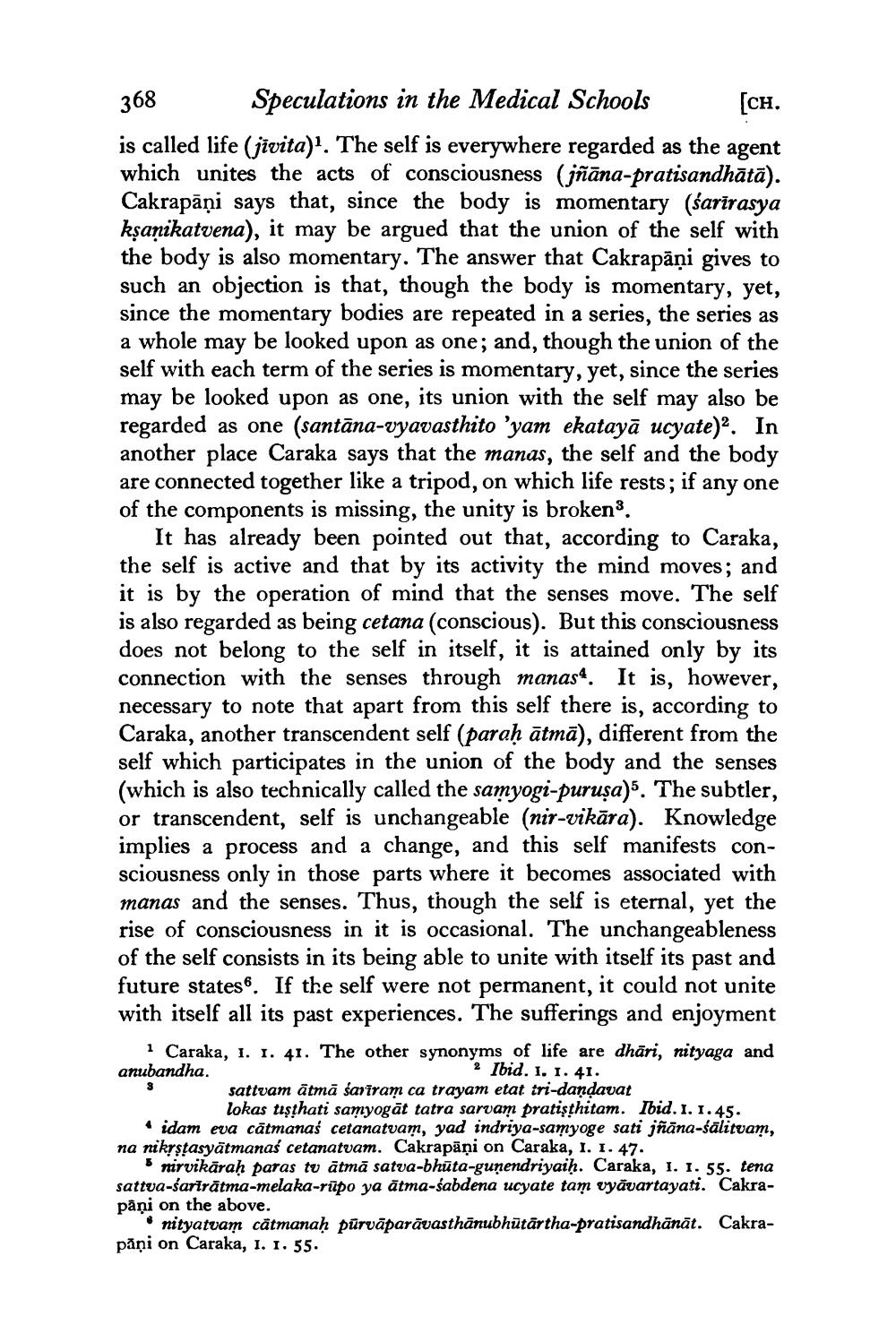________________
368
Speculations in the Medical Schools
[CH.
is called life (jivita)1. The self is everywhere regarded as the agent which unites the acts of consciousness (jñāna-pratisandhātā). Cakrapāņi says that, since the body is momentary (śarirasya kṣaṇikatvena), it may be argued that the union of the self with the body is also momentary. The answer that Cakrapāņi gives to such an objection is that, though the body is momentary, yet, since the momentary bodies are repeated in a series, the series as a whole may be looked upon as one; and, though the union of the self with each term of the series is momentary, yet, since the series may be looked upon as one, its union with the self may also be regarded as one (santāna-vyavasthito 'yam ekatayā ucyate)2. In another place Caraka says that the manas, the self and the body are connected together like a tripod, on which life rests; if any one of the components is missing, the unity is broken3.
It has already been pointed out that, according to Caraka, the self is active and that by its activity the mind moves; and it is by the operation of mind that the senses move. The self is also regarded as being cetana (conscious). But this consciousness does not belong to the self in itself, it is attained only by its connection with the senses through manas. It is, however, necessary to note that apart from this self there is, according to Caraka, another transcendent self (paraḥ ātmā), different from the self which participates in the union of the body and the senses (which is also technically called the samyogi-puruşa)5. The subtler, or transcendent, self is unchangeable (nir-vikāra). Knowledge implies a process and a change, and this self manifests consciousness only in those parts where it becomes associated with manas and the senses. Thus, though the self is eternal, yet the rise of consciousness in it is occasional. The unchangeableness of the self consists in its being able to unite with itself its past and future states. If the self were not permanent, it could not unite with itself all its past experiences. The sufferings and enjoyment
1 Caraka, I. I. 41. The other synonyms of life are dhāri, nityaga and anubandha. 2 Ibid. 1. 1. 41. sattvam ātmā sarīram ca trayam etat tri-daṇḍavat
3
lokas tişthati samyogat tatra sarvam pratisthitam. Ibid. 1. 1.45. idam eva catmanas cetanatvam, yad indriya-samyoge sati jñāna-śālitvam, na nikṛṣṭasyātmanas cetanatvam. Cakrapāņi on Caraka, I. 1. 47.
nirvikāraḥ paras tv ātmā satva-bhūta-guṇendriyaiḥ. Caraka, 1. 1. 55. tena sattva-śarīrātma-melaka-rupo ya ātma-sabdena ucyate tam vyavartayati. Cakrapāņi on the above.
⚫ nityatvam cätmanaḥ pārvāparāvasthānubhūtārtha-pratisandhānāt. Cakrapāņi on Caraka, I. 1. 55.




